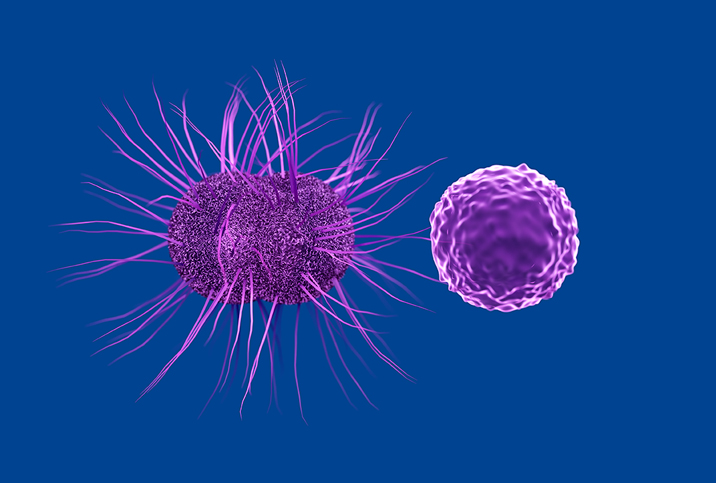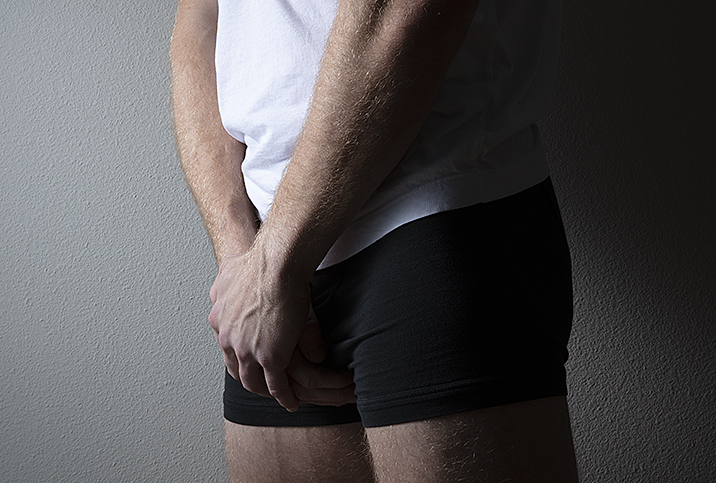When to Get Tested for Chlamydia

Chlamydia is caused by the chlamydia trachomatis bacteria and can infect both men and women. In addition to affecting the rectum, penis and vagina, chlamydia can also affect the throat.
This sexually transmitted disease (STD) can be contracted when an individual has unprotected anal, vaginal or oral sex with a partner who has chlamydia. An infected mother-to-be can also pass the infection on to a baby that is delivered vaginally, causing eye infections or even pneumonia.
Symptoms of chlamydia
Chlamydia often goes undetected, because in many cases it doesn't present symptoms. For this reason, it's crucial to undergo regular STD testing if you're at risk of getting chlamydia. Regular testing can help ensure that you get prompt treatment and avoid infecting others, especially if you're engaged in sex with multiple partners or you're in an open relationship.
In cases where chlamydia does cause symptoms, patients may experience:
-
Penis discharge
-
Itching or burning near the penis opening
-
Burning with urination
-
Testicular pain and swelling
-
Rectal discharge, pain or bleeding
-
Abnormal or strong-smelling vaginal discharge
-
Pain with sexual intercourse
-
Lower abdominal pain
-
Fever or nausea
-
Bleeding between periods
-
Bleeding after sex
Complications of chlamydia
Left untreated, chlamydia can lead to serious health complications in men, including the infection of the testicles and prostate glands. Chlamydia in women can lead to pelvic inflammatory disease (PID), infertility and ectopic pregnancy, due to scarring of the fallopian tubes. Both men and women can suffer reactive arthritis, which is also a potential complication of gonorrhea. Chlamydia can even lead to unexpected symptoms such as joint pain.
If you notice new or unusual symptoms, be sure to see your doctor for an STD screening. Your doctor will typically review your medical history, complete a physical exam and have you fill out a questionnaire about your symptoms and lifestyle. In most cases, a patient can be tested for chlamydia with a urine test or a swab of the cervix, urethra or anus.
You should also get checked if you're considered at risk for chlamydia or other sexually transmitted diseases. According to the Mayo Clinic, sexually active individuals age 25 or younger, pregnant women, and individuals who engage in unprotected sex or sex with multiple partners should get regularly screened for chlamydia.
Treating chlamydia
Chlamydia is relatively easy to treat. If you test positive for it, your doctor will prescribe antibiotics either in one dose or multiple doses over the course of five to 10 days. Infections typically clear in a week or two after treatment begins.
You should abstain from sex during treatment, because the infection can still be passed on until you test negative for chlamydia. Also, keep in mind it's possible to get reinfected with chlamydia if you continue to have unprotected sex. While chlamydia is easy to treat, you don't want to get repeated infections, which can cause scarring; it's best to be responsible after getting it the first time and take precautions against reinfection.
Reduce your risk
Common risk factors for chlamydia include having multiple sex partners, not using a condom during sexual intercourse and having a history of sexually transmitted diseases, because reinfection is common.
According to medical experts, you can reduce your risk for chlamydia by abstaining from sex, using condoms correctly during sexual intercourse, or by having sex only with one mutually monogamous sexual partner who doesn't have an STD.
If you think you might be at risk of getting chlamydia, don't hesitate to get tested. Detecting the infection early can protect you from infecting others and developing more serious health complications.


















